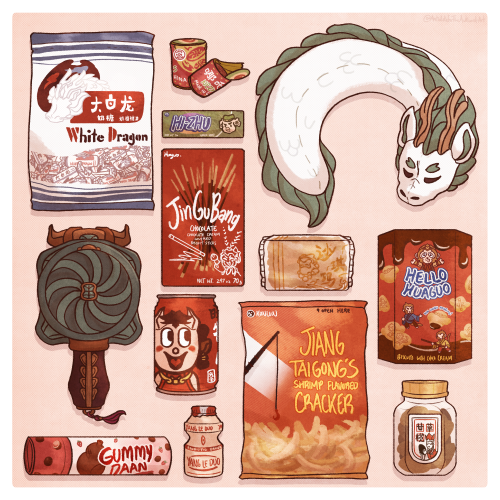Typing Pinyin Tones (macbook & Iphone)
Typing Pinyin Tones (macbook & iphone)
((I have apple products so I can't speak for windows computers or other brands. PLEASE add to this if you know how to do this for other products!))
Have you, like me, been typing everything into google translate to copy and paste the pinyin of words?
Have you, like me, been using the english keyboard holding button trick to get accents to pop up for à á ā and been using â for a 3rd/low tone because that was your only option??
NEVER AGAIN FRIENDS!
Typing Tones on an iPhone
First, you must have a pinyin-based Chinese keyboard on your phone. I'm assuming if you're learning Chinese you probably already have this?? So I'm skipping that part.
Go to the place where you want to type the pinyin and switch to your pinyin chinese keyboard
Hold the vowel you want and above it, the 4 tones will pop up
Slide your finger over to the on you want and let go (see image below)
That's it?? You now have pinyin and the suggestions for characters will go away!!

Typing Pinyin on a Macbook Computer
This is a bit trickier, bear with me.
Go to Settings/System Preferences
Go to Keyboard > Input Sources
Hit the little plus sign

4. Hit ABC - Extended and then hit "add"

Okay, you now have access to all four tone marks you need! You just need the codes for how to type it! These are the codes, you type these before any vowel to get the tone you want.
Option⌥ + a = 1st/high tone (ā)
Option⌥ + e = 2nd/rising tone (á)
Option⌥ + v = 3rd/low tone (ǎ)
Option⌥ + ` (just below escape key) = 4th/falling tone (à)
Note: for ü with an accent, you can use the above codes + v (e.g. ⌥ + a + v = ǖ)
If you ever forget, you can go up to your language input at the top header by the bluetooth/battery buttons and click "Show Keyboard Viewer." This will show you all the keys and when you press and hold Option⌥, it will show you all the possible key combinations (plus all the other features on this extended keyboard, it has quite a bit compared to the regular one!!)

Hope this was helpful!!! I'm so excited that I never have to go back and forth from google translate ever again :D
More Posts from Lia-kotik-blog and Others







Roadtrip snacks and essentials
Reading rec list for chinese learners. This is not exhaustive, if you find stuff that works for you then go for it! This is also not perfect, you may find stuff a bit easier or harder is more ideal for you. (By "know" below I mean you recognize the word as familiar, have studied or looked it up at some point, and so if you need to look it up again in reading you will learn it longer term fairly easily because of the repeated exposure to it in reading).
Know ~500 words?
Mandarin Companion Graded Readers. I recommend the Sherlock one, and the Journey to the Center of the Earth one. All Mandarin Companion books are excellent for beginners though.
Pleco Graded Readers - I recommend The Butterfly Lovers. There are a lot of Pleco Graded readers though, so you can pick based on amount of unique words (some Graded readers on Pleco go up to 2000 unique words).
Know ~1000-1500 words?
Sinolingua Chinese Graded Readers. There are several, and I started with the 500 word one. They somewhat match up with HSK and I found them more challenging than the Mandarin Companion graded readers. They have a vocabulary list in the back of the book and footnotes to help you study. They are a good bridge to get you from graded readers to other materials. I found the 1000 and 2000 word book equally difficult.
Pleco Graded readers, which include readers from 1000-2000 unique words.
Start delving into manhua! If you're ready and feel like it! Easier manhua will be slice of life setting ones, and ones based on something you're already familiar with. So if you've watched the Untamed or read 魔道祖师, then the manhua will be easier for you. If you've watched The Lost Tomb Reboot, then try out the slice of life comedy manhua spin off 盗墓笔记重启日常向 https://m.ac.qq.com/comic/index/id/649452. My Story 他们的故事 is a gl manhua which is slice of life and easy to read, as is 19天. There's also more genre specific manhua which I waited a bit to read, but if you're familiar with the story they may be doable like 2ha's manhua and 破云 manhua.
Know ~1500-2000 words?
Start getting into easier novels. Suggestions include 活着 (anything by this author is often recommended to learners, I have not actually read anything by him yet), 小王子 (this was my first not-graded-reader novel I finished reading in chinese, it was a bit challenging, I used a english/Chinese copy so I could look up words occasionally), 笑猫日记: 会唱歌的猫 (I highly recommend this series of books, they're for kids and fairly straightforward, set in a city so decently useful words are used, with a lot of chengyu that's commonly used so they're worth learning, I read 2 of these novels), 他们的故事 by 一根黄瓜丝儿 (a bl novel that's first person, generally uses a lot of common daily life words, and is fairly straightforward, I've read half and it was the first real novel I tried to read in chinese). These novels can be tried earlier on if you're more willing to use a click dictionary, which is what I did (except for 小王子 since I had a print copy). 论如何错误地套路一个魔教教主 The Wrong Way to a Demon Sect Leader (a fairly easy wuxia bl read).
Also in general anything you've read before in a language you understand, is going to be easier to read in chinese than something brand new.
Feeling brave? Up for a challenge?
撒野 and anything by that author uses a lot of more everyday language and is an easier read than some other webnovels. 盗墓笔记 does not use particularly hard language outside of the tomb genre words which if you're reading then you need to look up and learn anyway eventually (the slang in it is a bit hard but also worth learning so the cursing etc trips you up less later in other stuff you read), if you've seen the show before its doable to read. Scum Villain Self Saving System is on the easier end of mxtx novels to read, especially if youre already familiar with the plot.
Know ~2000 words?
The same novels as before apply. But now you may need a dictionary a bit less. Stuff like 撒野 will now be a bit less difficult, still challenging. Now other novels will start to be doable as desired, if you're using a dictionary. So go have fun looking into whatever webnovels you're interested in.
(I made a list of difficulty ratings of various webnovels in my rec list tag, you may want to check out that list. A quick gadget though is like... 撒野 author is easier than 盗墓笔记 author, then mxtx, then priest (and tian ya ke and zhenhun are easier than silent reading and sha po lang), and poyun was higher on the difficulty scale, 2ha was fairly hard. Basically the more vocabulary or thicker the paragraphs, the harder it's gonna be. Or the less familiar you are with a given genre).
At ~2000 words or more I'd say reading with a click dictionary feels quite doable, although a slog if you pick a harder novel so gauge what feels an okay level for you personally to read. And if you feel like reading without a dictionary, you'll have to explore a bit to see what's comprehensible to you without one.
Pronunciation Advice for Language Learners: How to Figure Out What You're Doing Wrong
The other day, my friend @calystarose was struggling with the phrase 出去吃 chūqùchī (go out to eat). This is a tongue twister for a lot of native English speakers. Even if we manage to get the individual vowels and consonant sounds correct, we often have a hard time stringing the words together.
I thought about the problem for a bit and then I told her to try saying it with her teeth clenched:
Why would that help?
Clenching your teeth forces you to hold your jaw still, and limits the amount of space your tongue has to move around. You can still make roughly the same sounds you were making before, but the new limitation forces you to make those sounds with smaller muscle movements.
Smaller movements reduce the amount of time and effort it takes to get from one syllable to the next.
.
Talking fast is more about efficiency than speed.
.

ɪᴘᴀ ᴋᴇʏʙᴏᴀʀᴅ ʀᴇꜰᴇʀᴇɴᴄᴇ ᴄʜᴀʀᴛ ᴍsᴋʟᴄ_ɪᴘᴀɢʀᴀᴘʜɪᴄ.ᴘᴅꜰ [sᴏᴜʀᴄᴇ]
When I first started taking French lessons, I had an easy time pronouncing words like "grand" and "robe." But then I ran into the word "livre," and suddenly I was getting tongue tied.
I realized my r was too far back in my throat. Too guttural.
This worked for a word like "grand" where the r is next to a g, a gutteral consonant. A consonant like v, on the other hand, is right at the front of the mouth, on the teeth.
If I wanted to say "livre" smoothly, I'd have to push my r further forward in my mouth, closer to that letter.
.
There's almost always more than one way to make your mouth form a particular vowel or consonant sound.
.
I noticed a while back that I say these letters t & d differently depending on whether I'm trying to speak English or Mandarin.
My t's and d's are little firmer in Mandarin than they are in English — my tongue is held stiffer, and the tip is more pointed when it comes into contact with my hard palate.
The funny thing is, I can't really hear a difference.
But I can feel the difference in my mouth when I shape the letters.
I never made a conscious decision to change how I say these consonants when speaking Mandarin — this is just something I naturally started doing when mimicking the recorded dialogue in my Duolingo audio lessons.
I realized it wasn't about getting the consonants to sound correct.
It was about what came after those consonants. The vowel sounds:
Chinese vowels are really different from English vowels. By changing how I shaped these consonants, I was setting up my mouth for a smoother transition into the next vowel sound.
.
Proper enunciation isn't just about making the right sounds come out of your mouth. It's also about transitioning from one sound to the next as fluidly as possible.
So... how do you say "rice" in Chinese?

Seems like an easy question, right? In some languages it certainly would be, but since rice has been a staple crop of parts of what is now China for at least 10,000 years, Mandarin Chinese has developed a lot of ways to talk about rice. In this post, I'm going to walk you through not two but three characters that mean rice and how they are used.
#1: 飯 (S: 饭) fàn

This is probably the first rice word that most learners learn. It means cooked rice, and because of how central rice is to many people's diets it also means meal and can be used metaphorically to refer to one's livelihood.
飯 is used in the names of dishes like 炒飯 (炒饭) chǎofàn "fried rice" and 滷肉飯 (卤肉饭) lǔròufàn "Taiwanese braised pork rice". In the sense of "meal", it is used in the words 吃飯 (吃饭) chīfàn "to eat a meal", 做飯 (做饭) zuòfàn "to cook" and 飯館 (饭馆) fànguǎn "restaurant".
#2: 米 mǐ

This is usually the second rice character that learners encounter. It means uncooked rice.
米 is used in words that refer to rice as an ingredient, such as 米粒 mǐlì "grain of rice" and 糯米 nuòmǐ "sticky rice". It is also used in the names of ingredients and dishes in which rice is processed in some way instead of being served boiled/steamed, such as 米粉 mǐfěn "rice flour, rice noodles" or 米豆腐 mǐdòufu "rice tofu". Finally, the character 米 also appears in the names of certain non-rice grains, such as 玉米 yùmǐ "corn" and 小米 xiǎomǐ "millet".
#3: 稻 dào

This is the character that most learners can go a long time without encountering. It means rice plant or paddy. It's mainly seen in words somehow relating to the cultivation of rice.
There are multiple words that can mean "rice paddy", such as 稻穀 (稻谷) dàogǔ or 稻田 dàotián. 稻 also appears in words that refer to parts of the rice plant, like 稻草 dàocǎo "rice straw" or 稻穗 dàosuì "rice ear". Finally, 稻 is used in words referring to various crops of rice, such as 早稻 zǎodào "early-season rice" or 晚稻 wǎndào "late-season rice".
Putting It All Together
Just because these words have distinct meanings doesn't mean they can't overlap! In fact, they can be combined to make new ways to say rice. 米飯 (米饭) mǐfàn means "cooked rice", and 稻米 dàomǐ means "rice (crop)". But can you combine 飯 and 稻? You can't-- they are just too far apart in meaning.
So there you have it-- three characters for rice. This is just a small snapshot of all rice-related vocab in Chinese, but I guarantee almost all of it contains one of these three characters. Do you have a favorite rice-related word? Or do you speak a language with many different ways to talk about a staple food?








The Porcelain House in Tianjin






Whisper of the Heart 耳をすませば 1995 | dir. Yoshifumi Kondō




Crafting a language self-learning curriculum (sort of)
In my experience textbooks aren’t really the best way to learn after you’ve passed a certain level. They’re incredibly useful for beginners to learn grammar and vocab but after that they don’t offer a lot of activities that help you implement your learning in a way that reflects how you will actually use it.
It’s also near impossible to learn a language without help. Don’t isolate yourself just because you are self-learning rather than taking lessons. You NEED to talk to native speakers, both through text messages and actual verbal conversations. Colloquial conversations will differ greatly to formal an ‘correct’ ones spoken in a classroom.
1. The first step I suggest when creating a curriculum is to know what your goal is. Are you planning to move to the country the language is spoken in? Do you want to study as a way to better understand and appreciate the culture?
2. The next would be to gauge what level you are at through taking a language competency test. This is mostly so you have an idea of what you do know and what is considered the universal “next step” to give yourself a general direction to head towards.
3. Write down topics that interest you. For me these would be my career (marketing and digital media), my interests (video games, ttrpgs, fashion, history, horror novels), and important parts of my identity (my religion, my sexuality, my partner, my disability) etc. I didn’t bother writing down anything I already know such as how to talk about my family, how to talk about my country of birth, or hobbies commonly written in textbooks such as reading, swimming, camping.
4. Now come up with a list of general activities to cover your listening, writing, reading and speaking skills. Some examples are listed below:
Listening:
Watch 5 minutes of the news - recaps or weekly rundowns are great for this
Listen to an audio book for half an hour whilst cooking, cleaning, commuting etc.
Create playlists of music you actually like in your target language - you can further this by watching interviews about the artists or watching any live performances/streams they have done.
Writing:
Write 1-2 paragraphs about a chosen topic without any dictionary or vocab list aid, any words you cannot remember or do not know just write in your native language. Return with a dictionary to fill in these missing words after and ask a native speaker to make any corrections they can spot and finally rewrite everything with all the corrections (taken from Lindie Botes).
Write practice professional emails, blog-posts, product reviews, leave comments under Instagram posts etc. Make sure to learn how to write in different situations: how does writing an email to your boss differ from writing to your colleague? How are businesses addressed on review sites? What changes when writing a blog for fashion from one about politics? Learn these nuances.
Text your native speaker friends - simple but necessary
Reading:
Read and summarise a key news article from this week
Read a page from a book in your target language, highlight any unknown words to return to. Write out the sentences these words occurred in then the words on their own with their definition and create a new sentence using them. My key tip for this is not to be too ambitious with what you are reading. Don’t try to read an epic fantasy, instead focus on short stories and books for children aged around 5-10. As you improve you can read more complicated plots but just because you are familiar with the book in your native language does not mean you will understand what is going on.
Speaking
Record yourself leaving fake voice mails. This can be for a doctor’s appointment, inquiring about a job, asking to hangout with a friend etc. Keep it short and tone appropriate. This also gives you the opportunity to research phone etiquette in that culture.
Talk. To. Native. Speakers.
5. Combine your topics of interest with activities to give you something that should resemble almost a lesson plan.
Example:



lemon cake with homemade blueberry compote + blueberry lemon buttercream decorated with white strawberries and edible glitter ! 🍓🫐🍋
-
 blackpointgame liked this · 9 months ago
blackpointgame liked this · 9 months ago -
 shadowwas-here reblogged this · 2 years ago
shadowwas-here reblogged this · 2 years ago -
 animallovergirl02 liked this · 2 years ago
animallovergirl02 liked this · 2 years ago -
 qujinchenqing reblogged this · 2 years ago
qujinchenqing reblogged this · 2 years ago -
 languah reblogged this · 2 years ago
languah reblogged this · 2 years ago -
 purplefist liked this · 2 years ago
purplefist liked this · 2 years ago -
 ephri liked this · 2 years ago
ephri liked this · 2 years ago -
 redcoatedraven liked this · 3 years ago
redcoatedraven liked this · 3 years ago -
 lia-kotik-blog reblogged this · 3 years ago
lia-kotik-blog reblogged this · 3 years ago -
 lia-kotik-blog liked this · 3 years ago
lia-kotik-blog liked this · 3 years ago -
 the--dasha liked this · 3 years ago
the--dasha liked this · 3 years ago -
 iamsweden reblogged this · 3 years ago
iamsweden reblogged this · 3 years ago -
 blog000001 reblogged this · 3 years ago
blog000001 reblogged this · 3 years ago -
 bchinese reblogged this · 3 years ago
bchinese reblogged this · 3 years ago -
 gotham-kid-on-a-budget liked this · 3 years ago
gotham-kid-on-a-budget liked this · 3 years ago -
 binntou reblogged this · 3 years ago
binntou reblogged this · 3 years ago -
 cielauniverse liked this · 3 years ago
cielauniverse liked this · 3 years ago -
 learnallthelanguages reblogged this · 3 years ago
learnallthelanguages reblogged this · 3 years ago -
 dradelcrasan reblogged this · 3 years ago
dradelcrasan reblogged this · 3 years ago -
 dradelcra liked this · 3 years ago
dradelcra liked this · 3 years ago -
 yuzanrath liked this · 3 years ago
yuzanrath liked this · 3 years ago -
 cottonegut reblogged this · 3 years ago
cottonegut reblogged this · 3 years ago -
 liu-anhuaming reblogged this · 3 years ago
liu-anhuaming reblogged this · 3 years ago -
 ogdit reblogged this · 3 years ago
ogdit reblogged this · 3 years ago -
 ogdit reblogged this · 3 years ago
ogdit reblogged this · 3 years ago -
 cosmicatlady liked this · 3 years ago
cosmicatlady liked this · 3 years ago -
 electronicmeloncloud liked this · 3 years ago
electronicmeloncloud liked this · 3 years ago -
 pekingopera liked this · 3 years ago
pekingopera liked this · 3 years ago -
 ehtele liked this · 3 years ago
ehtele liked this · 3 years ago -
 noizycat liked this · 3 years ago
noizycat liked this · 3 years ago -
 marquisoforder liked this · 3 years ago
marquisoforder liked this · 3 years ago -
 melpemone liked this · 3 years ago
melpemone liked this · 3 years ago -
 philateli reblogged this · 3 years ago
philateli reblogged this · 3 years ago -
 philateli liked this · 3 years ago
philateli liked this · 3 years ago -
 buckydunpun liked this · 3 years ago
buckydunpun liked this · 3 years ago -
 mayorofnowhere liked this · 3 years ago
mayorofnowhere liked this · 3 years ago -
 noctifernoctua reblogged this · 3 years ago
noctifernoctua reblogged this · 3 years ago -
 aconfusedidentity reblogged this · 3 years ago
aconfusedidentity reblogged this · 3 years ago -
 selkiebycatch liked this · 3 years ago
selkiebycatch liked this · 3 years ago -
 mdzsartreblogs reblogged this · 3 years ago
mdzsartreblogs reblogged this · 3 years ago -
 peilinsirpale liked this · 3 years ago
peilinsirpale liked this · 3 years ago -
 silva-jadefang liked this · 3 years ago
silva-jadefang liked this · 3 years ago -
 shuangdaozhang liked this · 3 years ago
shuangdaozhang liked this · 3 years ago -
 awkward-flaming-sword reblogged this · 3 years ago
awkward-flaming-sword reblogged this · 3 years ago -
 touchmycoat reblogged this · 3 years ago
touchmycoat reblogged this · 3 years ago -
 touchmycoat liked this · 3 years ago
touchmycoat liked this · 3 years ago